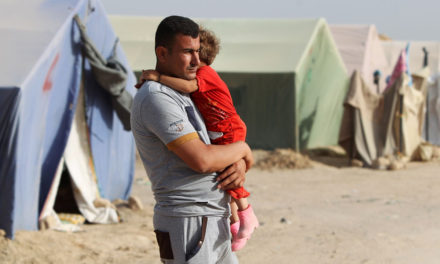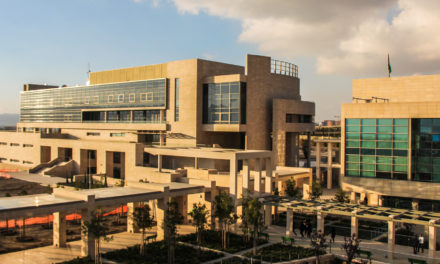As Iraq nears provincial and parliamentary elections in May 2018, it is becoming clear that politicians affiliated with the Popular Mobilization Forces (PMF) will take part in the elections. Prime Minister Haider Al-Abadi has been very clear that those who want to participate cannot do so as part of the PMF, regardless of the type of role they hold within the paramilitary forces. Members of parliament like Hadi Al-Ameri, a PMF commander, and Ahmed Al-Assadi, the former spokesperson of the PMF have already announced their intentions to run in the elections. They will do so by formally resigning from the PMF, before registering within a political party or entity. This is not unprecedented in Iraq given participants of previous elections and will not change the politics of the state or the issues it needs to address.
Meanwhile, the two main Kurdish parties, the Kurdish Democratic Party (KDP) and the Patriotic Union of Kurdistan (PUK) both have separate militias that operate under the name of the Peshmerga and they are formally registered as the Kurdistan Region of Iraq’s security forces. This has presented a major challenge to structuring a true independent security force in the Kurdish region and as a result has weakened the Kurdistan Regional Government (KRG). The myth of the Peshmerga being a single, independent force was shattered in October when some units made a deal with the Iraqi government to withdraw from disputed territories while others fought Iraqi forces.
Throughout the rest of Iraq, the political parties associated with the PMF that will run in the upcoming election have employed the same tactic every election. Badr Organisation is another prime example like the KDP and PUK, that has separated its political wing from its military wing in order to partake in the political process. This election will be no different other than there will be different political party names formed.
As problematic as this phenomenon is, unlike the KRG, the Iraqi state has century old formal security institutions such as the Ministry of Defense that do not require the assimilation of party militias to form an independent state army. A national force already exists and despite the popularity of the PMF, the Iraqi Security Forces still out-power the PMF. The parliamentary and executive bills to adopt the PMF within the state’s military structure is to ensure the federal government can control as much of the armed groups present in the country as possible. There are plenty of security reasons to continue to keep and professionalize the PMF and to incorporate them within the Iraqi Security Forces; PMF could form much needed reserve forces that have not existed before or to could bolster Iraq’s border presence that has been porous over the past 14 years.
Some view the politicization of the PMF through the disingenuous resignation of PMF leaders as being problematic, but the situation is similar to four or eight years ago. For all the outcry of the militarization of Iraqi politics in fear of the PMF, the counter to that is this would have still been as issue going into these elections even if the PMF was not formed to fight against Daesh. The divisions of the PMF loyal to the Iraqi state and operating under the military structure of the Iraqi Security Forces are not an issue and those units that pose a problem were always going to do so, as they were present before June 2014. Whether to dismantle the PMF or integrate them within the Iraqi Security Forces, those groups whose leadership may not abide by the Iraqi Government’s orders were never going to do either of the two.
Therefore, given how effective the PMF have been in the fight against Daesh and their continued need in Iraq today, the path to further professionalize and integrate them seems to be the most realistic and best option available. As for the other groups that were present before the formation of the PMF and were always going to be present regardless of the official fate of the PMF, they need to be dealt with accordingly and the only possible way to do so is by strengthening the Iraqi state and its military institutions. Instead of bemoaning the Iranian presence in Iraq while offering no solutions to resolve it, providing support to the federal government of Iraq will strengthen its own security capabilities and weaken reliance on its neighbors.

Hamzeh Hadad
Hamzeh Hadad is an Iraqi writer and commentator. He is currently a Master of Arts candidate at the Norman Paterson School of International Affairs.










